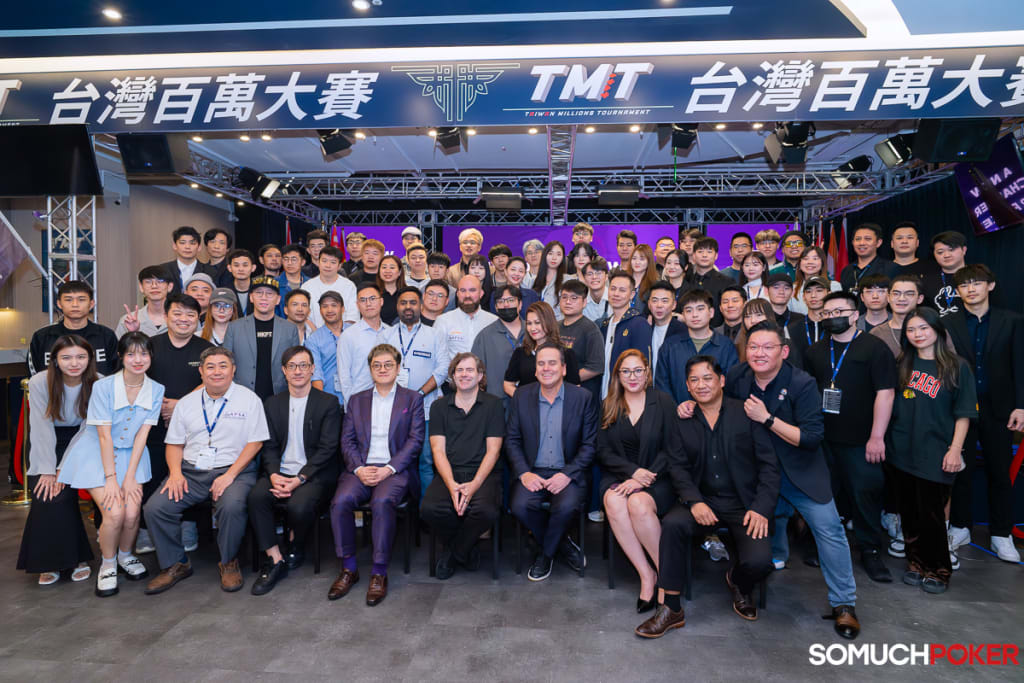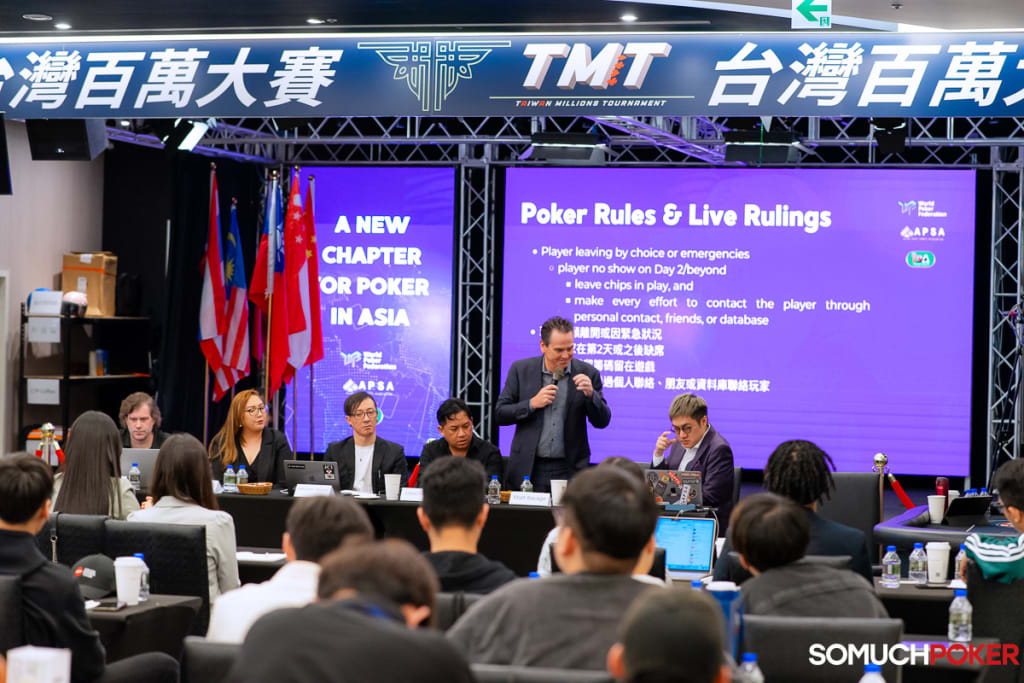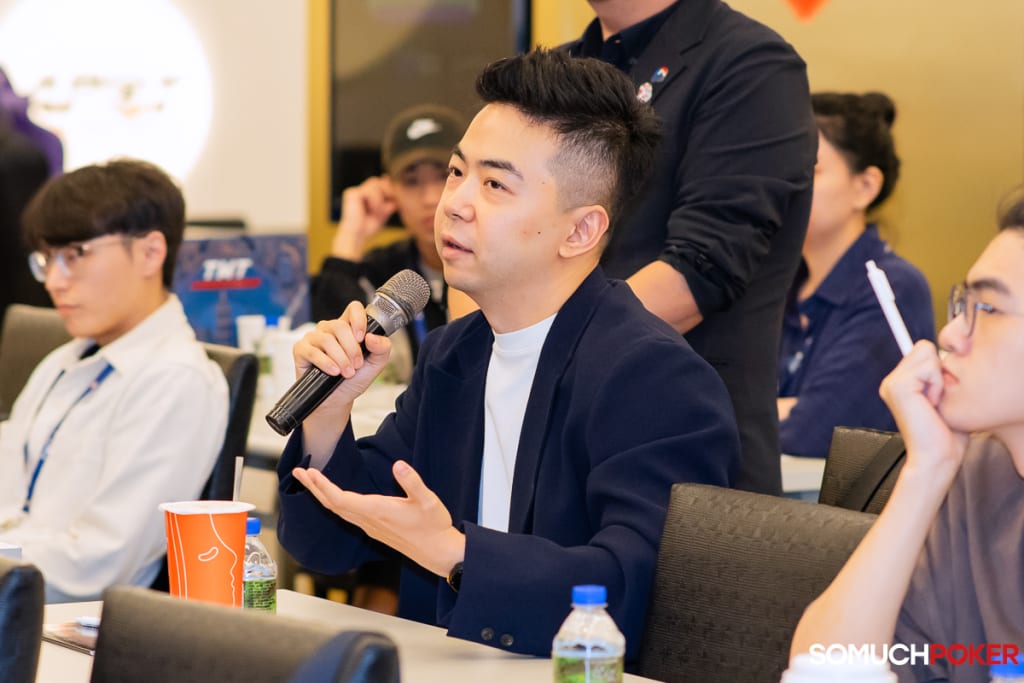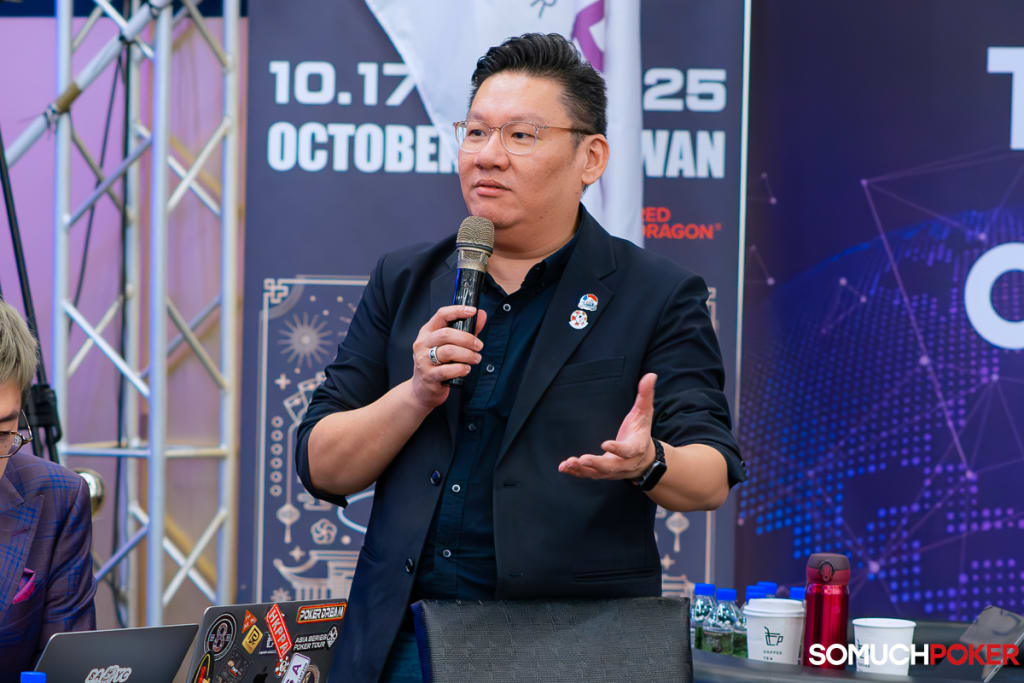TDA Continental Summit 2025: Asia Joins Global Conversation on Poker Standards

The inaugural WPF + TDA Continental Summit: Asia Edition, held on July 21, 2025 at the CTP Asia Poker Arena in Taipei, marked a milestone moment for poker across the region. More than just a forum for standardizing rules, the summit sparked a lively and insightful discussion that reflected just how far Asian poker has come and where it’s headed next.
This collaborative event, brought together by the World Poker Federation (WPF), the Tournament Directors Association (TDA), and the Asian Poker Sports Association (APSA), gathered a diverse mix of tournament directors, industry leaders, and local experts across the continent. Leading the summit was Hong Kong Poker Players Association’s Ray Chiu, who guided discussions alongside TDA founder Matt Savage and board members Neil Johnson and Lloyd Fontillas. Voices from the ground like Mylene Advincula of Metro Card Club and Japan’s Nobuyoshi Takizawa offered firsthand insights shaped by years of experience on Asia’s bustling floors.
TDA Continental Summit 2025

At its core, the summit aimed to address practical tournament challenges while exploring regional innovations that could shape the future of poker worldwide. What unfolded was a full day of open, unfiltered dialogue, where local realities and global standards were met in thoughtful exchange, all with the shared goal of moving the game forward. Matt Savage, a longtime advocate for poker’s growth on the global stage, underscored why Asia is now impossible to ignore.
The amount of people that live here and the passion they have for the game… it’s really fantastic. We did a TDA summit in Japan last year and it sold out in fifteen minutes. Poker is technically not even legal there, but the passion and excitement for poker is incredible. This market is still in its infancy, and I’m really excited to see where this goes.
The Challenges Behind the Table
Beyond broad strategy, the TDA Asia Summit zoomed in on the day-to-day rulings that define tournaments across the region. From late registration policies to ambiguous betting, directors exchanged honest takes on what works, what doesn’t, and what needs clearer standards.

Chief among them were policies on late registration and re-entry, particularly the practice around increasing rebuys and allowing players to enter with fewer than 20–25 big blinds. Seating late registrants only after the button passes also drew differing views, reflecting the balance between rule enforcement and player-friendly service. Excessive table talk was highlighted as a disruptive force, while the potential adoption of shot clocks and proper handling of time banks sparked conversation about cultural fit and consistency. Ambiguous betting actions such as the “all-in minus one chip” move, were repeatedly flagged, along with unclear rulings around acting after time expires or when verbal and physical actions don’t align.
Discussions extended into floor mechanics, covering everything from how the button is drawn to level changes during dealer rotations and optimal practices for breaking tables. The speakers also raised concerns over electronic devices in-game, reading tabled-hands, and permissable languages across tables. Broader topics like enforcing penalties that could lead to elimination, managing non-standard or marked cards, and even bounty event logistics, were also revisited.

Across all these touchpoints, the conversation consistently returned to the importance of empowered floor staff, thoughtful training, and culturally aware judgment, elements considered crucial to building trust and maintaining fairness in Asia’s fast-growing poker community.
Throughout it all, one theme was clear: even the best rules fall short without strong floor staff to enforce them. Training, communication, and discretion were emphasized as essential. The panel spoke of efficient dealer training, ensuring floor calls are consistent, and maintaining a player-friendly atmosphere without compromising control. In a region where direct confrontation is often avoided, good judgment and cultural awareness matter just as much as technical know-how.
Looking Ahead
Fittingly, the summit closed with a major announcement that Taipei will now host the TDA Asia Summit annually, cementing its place as Asia’s poker capital. With a world-class arena, thriving local community, and growing international presence, the city is well positioned to anchor this movement.

Few have witnessed that growth more closely than Raymond Wong, a key figure at both CTP and the Asian Poker Sports Association (APSA). For him, Taiwan’s rise isn’t accidental, it’s the result of steady work, smart partnerships, and a little friendly competition.
I think now Taiwan, especially starting 2–3 years ago, it’s been stable. With the effort of David Tai in pushing legalization and with WPF recognizing poker as a sport, I think that it is mature already. Moving forward, it will be a challenge for different branding and associations that will be coming into Taiwan, but we don’t mind that, because the more competition, the more players will be in Taiwan. This is what we want to see too.”
But stability isn’t the end goal, it’s just the beginning. Wong believes the summit was a turning point for regional unification and ambition.
It’s definitely growing, poker in the whole Asia is growing, but I’m looking forward to it being bigger after this TDA meeting, all the industry leaders coming together. Hopefully, Taiwan will become a real Asia hub of poker, but of course, we still have a lot of things to settle. I’m pretty sure with the policy support for visa applications, Taiwan will be very fantastic in the future.

Matt Savage shares the same optimism. “We’re already seeing it,” he said. “During the summer in Las Vegas, many Japanese players have made the trip. And we’re having Chinese players, Taiwanese players, and players from India. It’s exciting to see that, and in the next five years, I think Asian players could become the #1 players in the world.”
He also believes Asia’s presence on the global stage will only continue to grow.
The numbers really show it. Every year, the number of players coming from Asia keeps rising. I think this year there were hundreds of Japanese players at the World Series of Poker. It’s not just the players, it’s also the bloggers and influencers like Masato Yokosawa, who are doing a fantastic job of spreading the word and generating excitement about poker.
As organizers packed up and looked ahead to the next edition, one message rang clear – Asia is no longer finding its place in the global poker scene, it’s helping define it.

































